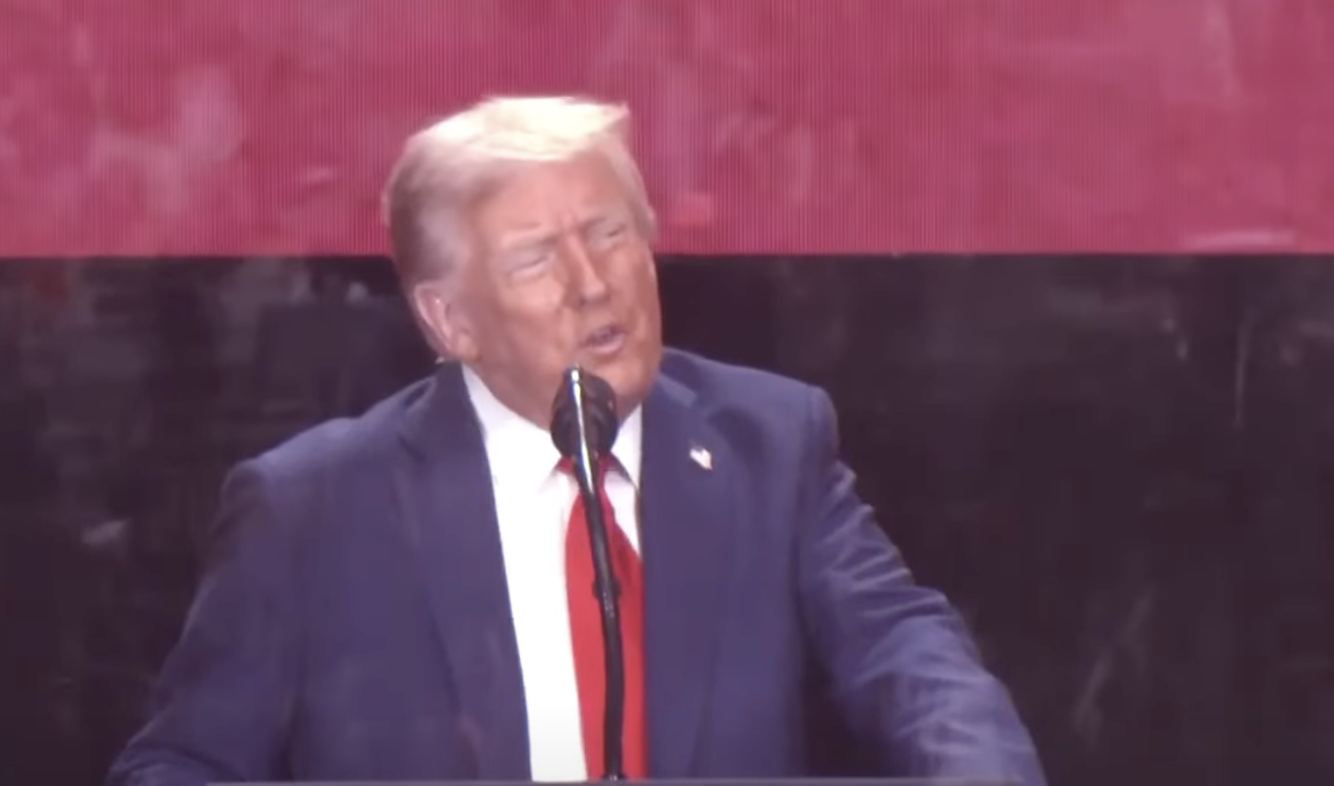President Donald Trump told the nation’s most senior military officers that there are “two N-words” that “you can’t use,” invoking the taboo racial slur by euphemism while saying he also avoids the word “nuclear,” during a wide-ranging address at Marine Corps Base Quantico in which he cast the United States as facing a “war from within” and urged a larger domestic role for the armed forces. Speaking about strategic weapons and deterrence, Trump said, “We can’t let people throw it around, that word. I call it the N-word,” before adding: “There are two N-words, and you can’t use either of them,” remarks delivered with a grin that drew little audible reaction in the auditorium. He coupled the line with a boast about U.S. capabilities—“Frankly, if it does get to use, we have more than anybody else. We have better, we have newer, but it’s something you don’t ever want to have to think about”—framing his reluctance to say “nuclear” as a kind of superstition even as he stressed superiority. The exchange formed one of the most quoted moments of the Sept. 30 speech, which otherwise focused on domestic security, immigration and the notion of enemies operating inside U.S. cities.
The venue for the remarks underscored their unusual nature: a rare gathering of generals and admirals flown in from commands around the world to Quantico, Virginia, for a day of briefings called by Defense Secretary Pete Hegseth. In the opening portion of his address, Trump told the officers that “it’s a war from within” and repeated the line “We’re under invasion from within,” as he argued that the military’s job includes combating what he described as a domestic enemy present in Democratic-run cities. He named New York, Chicago and San Francisco among places he said were in “bad shape” and could be “straighten[ed] out, one-by-one,” asserting that threats inside the country are “no different than a foreign enemy.” The framing marked a sharp emphasis on homeland missions and on expanded use of uniformed forces in urban environments, a posture he said he had already acted upon by ordering federal troops to Portland, Oregon, over the preceding weekend.
Trump also told the assembled officers he had suggested to Hegseth that “we should use some of these dangerous cities as training grounds for our military National Guard,” an idea he linked to the need to prepare for domestic unrest and to what he described as failures by local leaders. The line was part of a broader set of directives in which he pressed the services to adopt a more aggressive stance inside the United States and to treat the homeland as the primary theatre of concern. Throughout, he returned to the same formulation—“We’re under invasion from within”—as a justification for the shift. He spoke without the call-and-response rhythm of a campaign rally, and pool reporters described an audience that remained largely expressionless as he moved from domestic security to tariffs, shipbuilding and strategic weapons.
The audience’s reserve became a theme of the event. “I’ve never walked into a room so silent before,” Trump said early in the speech, acknowledging the lack of applause before adding a joking warning: “If you want to applaud, you applaud. You can do anything you want. And if you don’t like what I’m saying, you can leave the room. Of course, there goes your rank, there goes your future.” The aside drew a smattering of nervous laughter, according to accounts from the room. Outside the auditorium, just hours earlier, he had told reporters as he left the White House that he planned to fire any senior officer “on the spot” if he disliked them during the session at Quantico. The stiffness in the hall persisted even when he shifted back to his preferred claim of American nuclear dominance, returning to the subject of strategic deterrence to argue that, while the word is best avoided, U.S. forces would prevail if weapons were ever used.
